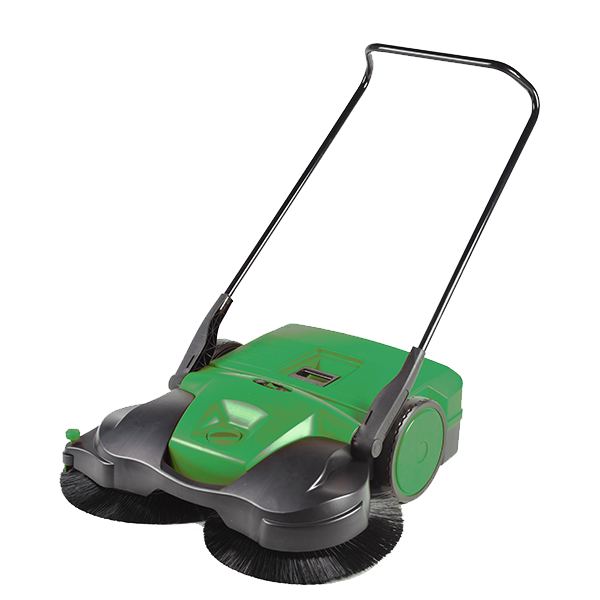
Power Sweepers Offer Alternative to Noisy Leaf Blowers
Just over half of Americans call the suburbs home. Many choose their dwellings to escape the hustle and bustle of the city while enjoying space and peace and quiet. The quiet, however, can be a problem.
While suburban streets are typically free of blaring sirens and horns beeping in frustration at traffic, they are plagued with a different sound come fall: the whir and wail of leaf blowers.
To gardeners and landscapers, the leaf blower is a godsend, saving hours and hours of back-breaking raking once the leaves cascade from the trees. To others, it’s an abhorrence. Once a neighbor’s landscaping crew arrives and fires up two or three leaf blowers, the peace and quiet of the neighborhood are replaced with nuisance noise.
A recent survey of residents living in the neighborhoods that circle Boston highlighted the irritant. Researchers, armed with sound level meters and bicycles, recorded noise levels at hundreds of locations in the area, including barking dogs, air traffic, blaring music and more. The major culprit of annoying noise pollution wasn’t the jets overhead or trains in the distance — it was leaf blowers. While the noise levels produced by blowers vary widely, the most powerful models used by landscapers can push noise levels as high as 112 decibels.
The problem is amplified by a change in lawn care. Increasing numbers of suburban denizens are enlisting the services of landscapers, turning what was once a weekend issue into a weekday one. Leaf blowers are now creating noise pollution seven days a week, and not only in the fall: they are used by crews on everything from lawns and flower beds to patios.
The sound isn’t just annoying; it may also be harmful. The World Health Organization considers noises above 55 decibels to be harmful. From as far as 800 feet away, a commercial-grade gasoline blower can emit sounds well over that threshold. Now imagine if it’s blowing at the house right next door.
Bissell Power Sweepers Won’t Wake the Neighborhood
The alternative to noisy leaf blowers doesn’t have to be tedious raking. Our power sweepers can collect both wet and dry leaves on hard surfaces without waking the neighborhood. These highly efficient, battery-powered units are easy to operate and feature wide paths with a triple brush system. While two front brushes rotate in opposite directions, grabbing the debris directly in front of the sweeper, the third brush roller on the bottom picks up fine particles from hard surfaces. The debris is then deposited into a large, easy-to-empty container.
It is the quiet, ideal alternative to leaf blowers for use on hard surfaces. If you’d like to learn more about how you can get the job done this fall without disturbing the peace, contact Bissell today.
